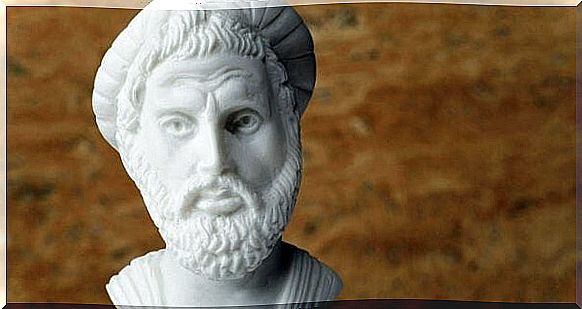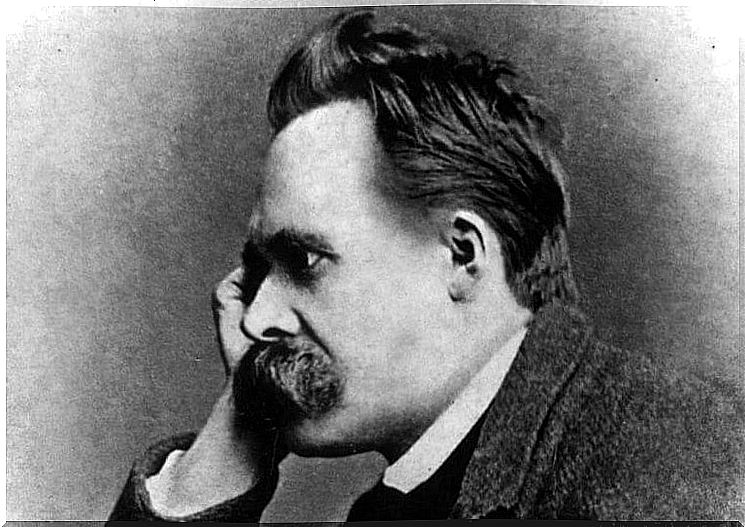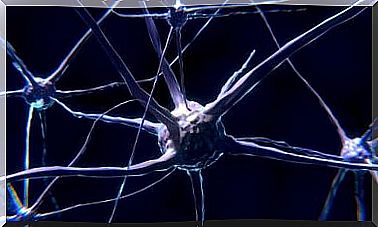7 Fascinating Philosophical Theories To Think About

You may remember that philosophy was one of the most boring subjects you read in school. However, philosophy is a fundamental part of our daily lives. Philosophical theories make us reflect on who we are and where we are going.
They teach us to think and reflect. They constantly question established truths to verify hypotheses and look for solutions. In fact, it is such an important topic that the UN has declared November 16 as “Philosophy Day”.
Philosophical theories unite movements, schools of thought, beliefs and even scientific laws. We will address some of the most interesting. How many have you heard of?
You have probably heard of Pythagoras’ theorem, which has to do with right-angled triangles. With Pythagoreanism was actually a philosophical and religious movement around 600 years before Christ.
It was founded by Pythagoras of Samos. He was one of the first pure mathematicians and one of the most important in history. He was for religion and science not to be two separate entities but two inseparable parts of the same life path.
It consisted of astrologers, musicians, mathematicians and philosophers and believed that everything was basically about numbers. In other words, everything in nature follows numerical rules. But even if it was a theory that had mathematics as a benchmark, it was also a mysterious movement.
The religious symbol was the pentagram which they called “health”. During these times, they used it as a secret sign to recognize each other.

Epicurus began this philosophical movement around 400 BC, and thereafter his followers kept it alive. The idea of this theory was the search for happiness through the search for pleasure. They understand both the concepts of pleasure and happiness as the absence of pain.
To achieve that happiness, they distinguished between three types of pleasure that allow you to achieve ataraxia . A state of calm, the absence of things that disturb the person and a perfect balance between the mind and the body.
Epicurus explained that, from this perspective, God does not exist. His idea was this: God is good and almighty, but bad things affect humanity, even good people. Why is this happening?
Two possible logical explanations arise. Either God is not good because he lets bad things happen. Or he is not omnipotent because he can not prevent them from happening. In both cases, he claims that the existence of God can be annulled. However, logic is not always the best way to approach these things, so what do you think of this explanation?
It has not been the most controversial theory, but scholasticism is one of the most interesting philosophical theories because it is so heterogeneous. It comes from Greek, Latin, Arabic and Jewish currents and was dominated by the medieval way of thinking. The central idea was that reasoning should be subordinated to faith and the coordination between the two.
Some authors believe that this theory is too static and that it only deals with memorizatio. This is due to its somewhat orthodox methods of education. Its philosophical aspects are not only a line of theological dogma, but also a collaboration between faith and reasoning. Its goal is to understand reality from a human perspective.

Cogito ergo sum (I think, therefore I am). With that phrase from René Descartes, we can summarize one of the most well-known philosophical theories: rationalism. It teaches us that reasoning is the root of the truth and the only way to achieve it. It therefore denies the dogma of faith and considers the world with the unconscious to be “doubtful.”
This French mathematician had a rather special life. He had health problems which led to him spending many hours in bed. This gave him an opportunity to think about the world. A few years after this, he laid the foundation for this philosophical movement.
Europe was already well developed in the 17th and 18th centuries and rationalism brought forward the methodological doubt as the only way to attain knowledge.
Descartes himself and writers such as Berkeley, Kant, Fichte (subjective idealism), Leibniz and Hegel (objective idealism) were some of the main representatives of this movement.
This is one of the philosophical theories we have gotten the most from. How many times have you not told someone that “you are too idealistic”? But do we really know what this means? In fact, this has very little to do with reality, because idealism sees the world and life as perfect harmonious models.
They believe that everything is better than it actually is. They tend to see things as perfect and consider things to have attributes that they do not really have. As a result of this movement, this type of attitude is called “idealizing”.
There are two different movements, but both agree that objects cannot exist without the mind being aware of them. They claim that the outside world depends on the human mind. Idealism elevates the value of the irrational, the traditional, and the sentimental.

“God is dead.” With this phrase, Nietzsche conceptualizes one of his most bitter satires. He also made persistent criticisms of Western society.
For this philosopher, poet, musician and philosopher, the world is polluted by a deep nihilism. It must overcome this if it does not want to perish. He talks about the destruction of our highest values. This is a historical process that seeks to “remove what were previously considered to be the highest values”. Many thinkers have stated that he contradicts his own ideas. He defends himself by claiming that he used different approaches in his work to challenge the reader to think about different aspects of the same subject.
Tsa Lao Tzu was living during the same time period as Buddha, Pythagoras and Confucius. However, we do not know much about his birth and death. Tao consists of 2 ideograms: head and marching. We therefore interpret this as the man who advances, who walks consciously, who discovers his own way. The meaning depends on the context and discovering one’s own path. The meaning depends on the context and manifests itself in philosophical, cosmological, religious and moral terms. It is based on dynamism and duality: the idea that the opposite complements each other, like yin and yang.
This collection of philosophical theories shows us how thoughts have changed over the centuries. But it also shows that many dogmas and hypotheses still exist today. Knowledge of reality has developed just like the human mind, from childhood to adulthood.








